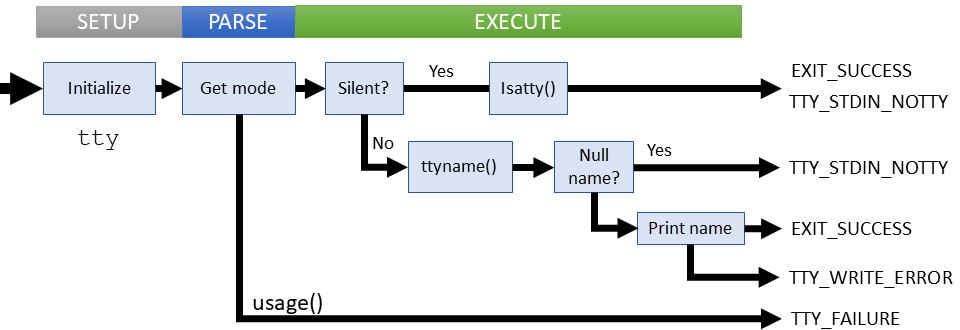[GNU Manual] [POSIX requirement] [Linux man] [FreeBSD man]

Summary
tty - print file name of terminal on standard input
Lines of code: 134
Principal syscalls: None (ttyname() and isatty() are not syscalls)
Support syscall: None
Options: 5 (1 short, 4 long)
Descended from tty introduced in Version 2 UNIX (1972) //dmr&ken
Added to Shellutils in November 1992 [First version]
Number of revisions: 94 [Code Evolution]
Although they share names, the tty and stty utilities are unrelated
Helpers:- None
- None
Setup
tty has two points to consider: Custom failure exit status and a global flag for silent mode
The failure exit status are as follows:
TTY_STDIN_NOTTY- No tty interface foundTTY_FAILURE- Usage failureTTY_WRITE_ERROR- The defaut exit status reachable on uncaught failures (ie. badputs()to the reported tty)
At global scope, we initialize a flag silent asserted if no output is to be provided (only exit status code). Initialized in main() as false by default.
main() defines optc to hold the current parsing option.
Parsing
The only task for parsing tty is if we need to enable silent mode.
Parsing failures
These failure cases are explicitly checked:
- Using extra operands
- An unknown option is used
Execution
The tty utility is simply a wrapper for the ttyname() or isatty() C library calls. The execution is as follows:
- If silent mode, invokve
isatty()as the return status - If not silent, get the tty file via
ttyname() - If the name is value, print the name. Otherwise, print 'not a tty'